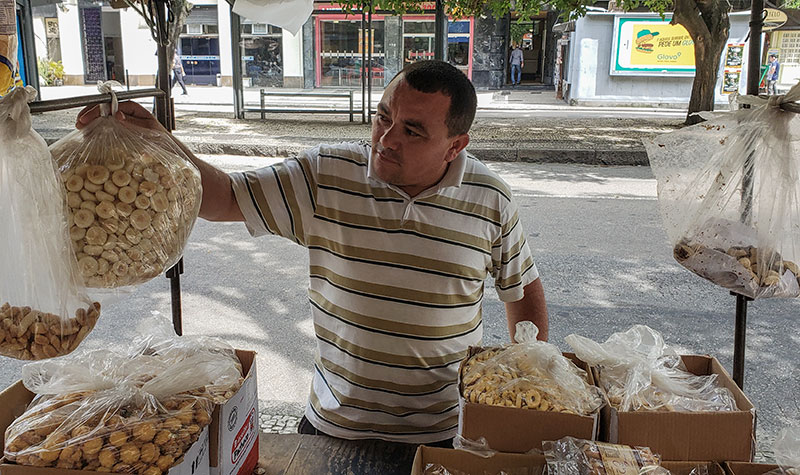Citizen Constitution: 30 years later
Social protetction grows, but faces challenges of future funding
November 06, 2018 01h45 PM | Last Updated: November 23, 2018 09h55 AM
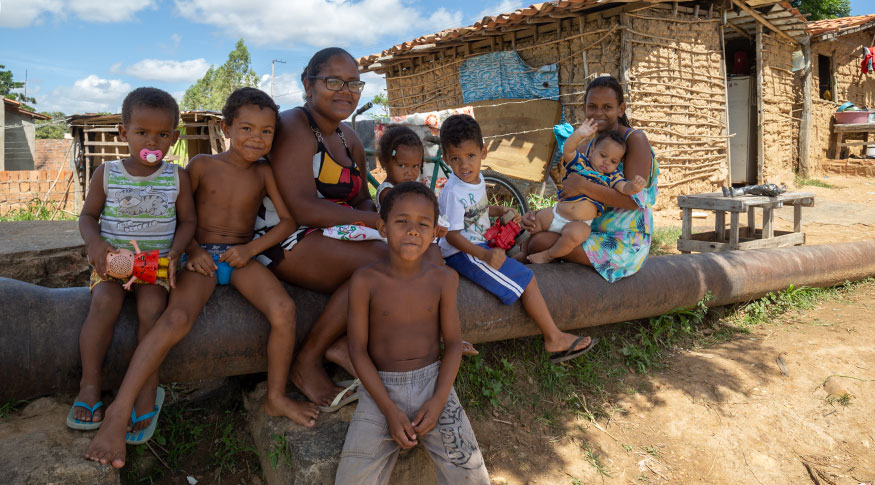
Thirty years after the adoption of the 1988 Federal Constitution, the advances in social protection in Brazil are undeniable, but social security still faces major challenges, especially in the financing of social security when it comes to changes in the age structure of the population. This is what the fourth article in the series "Citizen Constitution: 30 Years Later" shows.
Art. 194. Social security comprises an integrated set of initiatives of the Public Authorities and of society, aimed at ensuring the rights related to health, welfare, retirement and social assistance.
The text of the charter devoted a whole chapter to social security, showing that retirement and the protection of those in need, as well as health, are important subjects in the pursuit for a fairer society in the future. Therefore, in addition to the creation of the Unified Health System (SUS), the Constitution provided for the Single System of Social Assistance and the rural retirement regime.
"The 1988 Federal Constitution has certainly greatly expanded social protection. It established a financing structure for social security and expanded rights as well. One of the most important expansions was to turn health care into a universal and free right," explains Rogério Nagamine Costanzi, coordinator of Studies and Survey on Social Security at the Institute for Applied Economic Research (Ipea).
Regarding rural retirement, Nagamine points out that the rural worker has gained access to the pension without having to prove the contribution to the INSS, which resulted in a significant increase in the number of rural beneficiaries.
Constitution gave visibility to low income populations
The Constitution also provided for the Continuous Cash Benefit, later regulated in the Organic Law of Social Assistance (LOAS), of 1993. The benefit guarantees a monthly minimum wage for the elderly or persons with disability, who cannot afford to make a living. The program came before the Bolsa Família, created in 2003, and has not been yet incorporated into the constitutional text.
"[The Bolsa Família] gathers several income distribution programs that already existed at the time. Its importance is due to the fact that it gave visibility to invisible populations within the scope of public policies. The idea, which began with Bolsa Escola in the municipalities and was later adopted by the Federal Government, was to break intergenerational cycles of poverty. The Constitution created the basis for all this," says IBGE Coordinator of Population and Social Indicators, Bárbara Cobo.
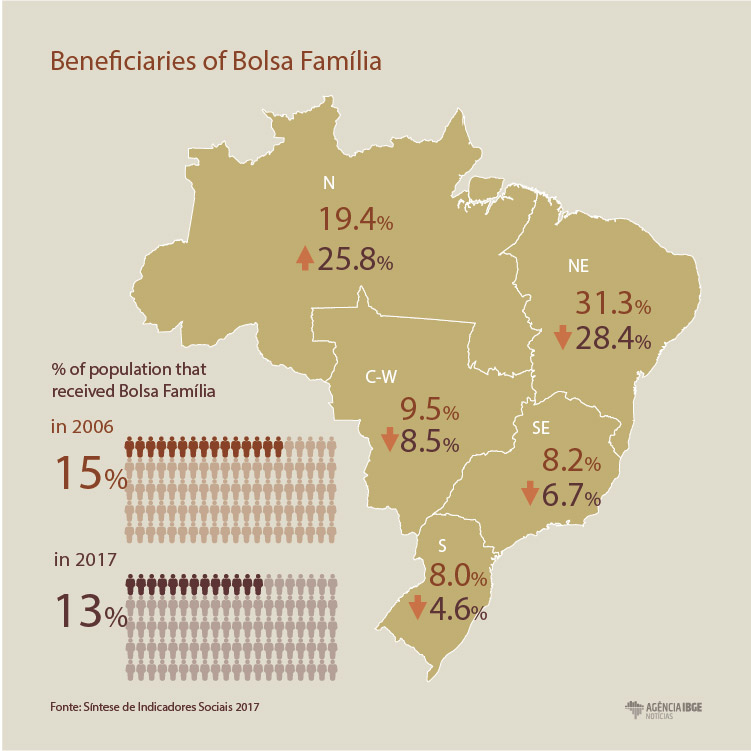
According to Barbara, Brazil does not have a specific definition for the official poverty line, but the IBGE Summary of Social Indicators interprets the data on the theme in the light of the poverty lines adopted in the world.
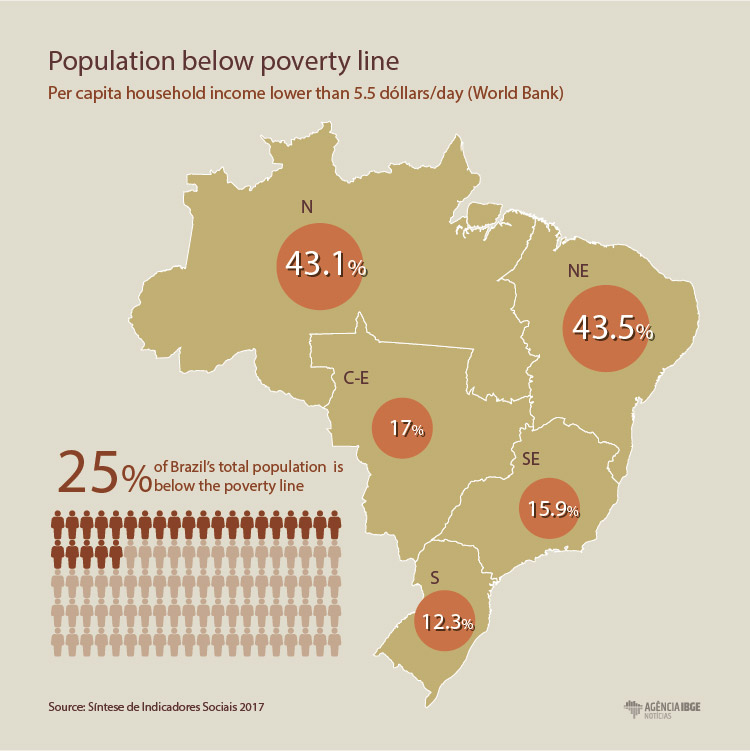
Population aging is a challenge
In addition to the possible increase in benefits provided by the Continuous Cash Benefit (BPC), the gradual aging of the Brazilian population is seen as a challenge for financing the current Social Security model, based on solidarity among taxpayers (active workers contribute to pay the pensions of retirees).
Barbara points out that the existing demographic transition is not out of the blue: "population aging took place as expected and announced. It is not a blow-out . Changes are necessary, but we have to think about the people in the job market and their quality of life."
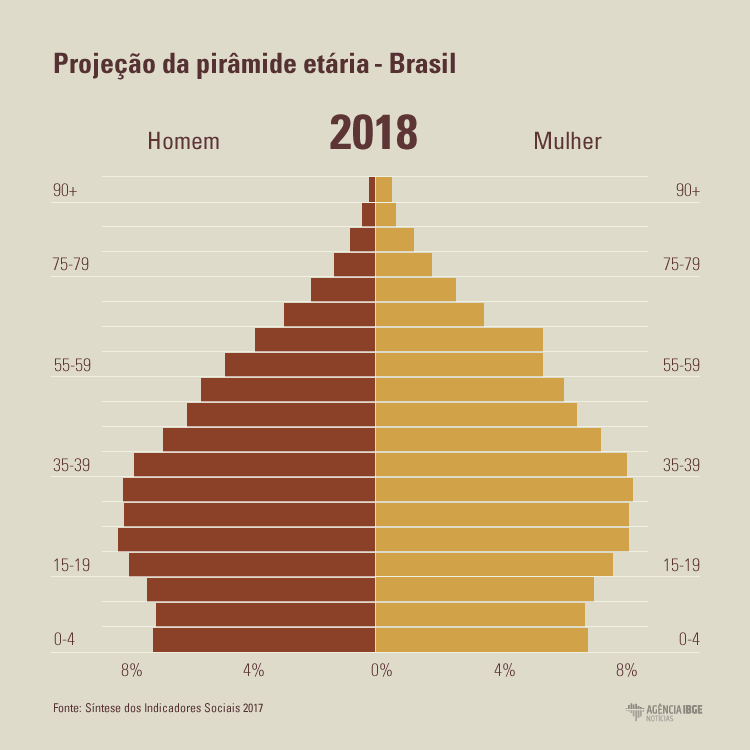
At 40 years old, Antônio Pereira works as a biscuit seller in a street stall in downtown Rio de Janeiro. Although it is an informal job, he contributes to the National Institute of Social Security (INSS) as a self-employed person.
"I think the contribution to the INSS is the most reliable guarantee we have. Right now it is as good as it gets. I listen to television on a regular basis [about the possibility of security changes], but I do not keep up with them day after day," says Antônio, who has been working in the same place for 18 years.
According to Barbara, it is important to consider the role of pensions in the fight against extreme poverty: "it is a matter of protecting some people who have not been able to contribute along their lives. Today we realize the importance of rural security in smaller municipalities, where sometimes the retiree is the only one who has an income. It also has to do with fighting against poverty," points out the researcher.
